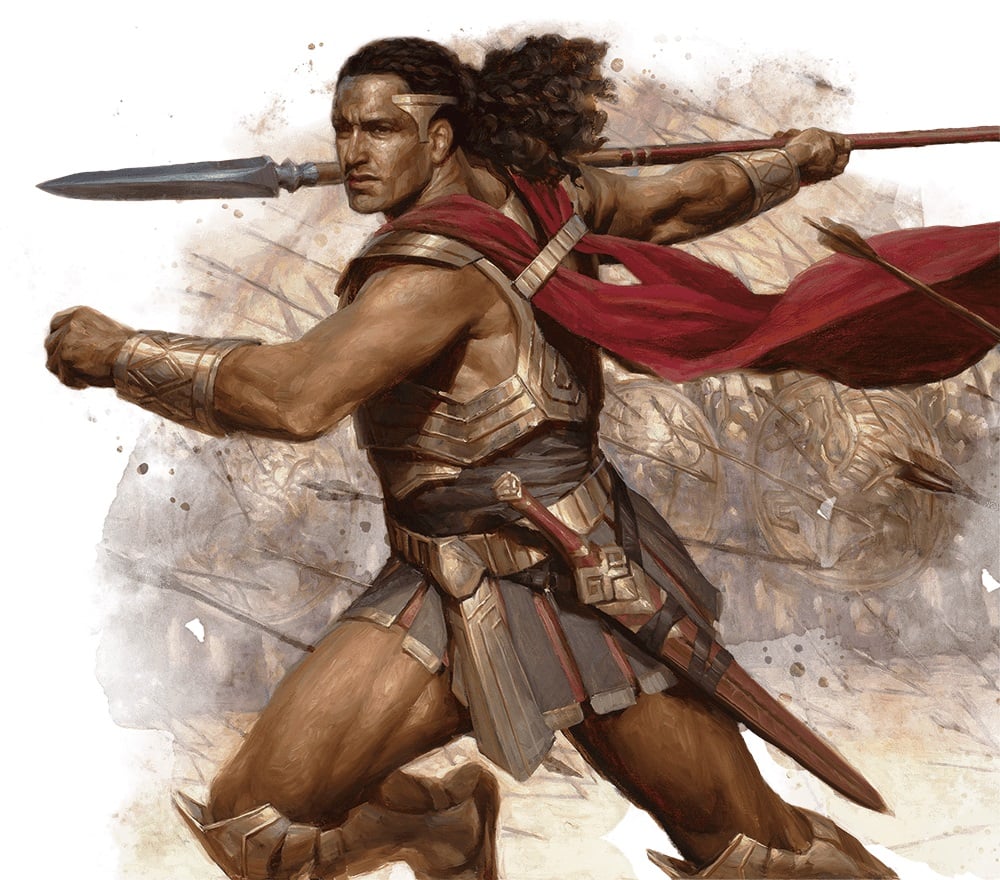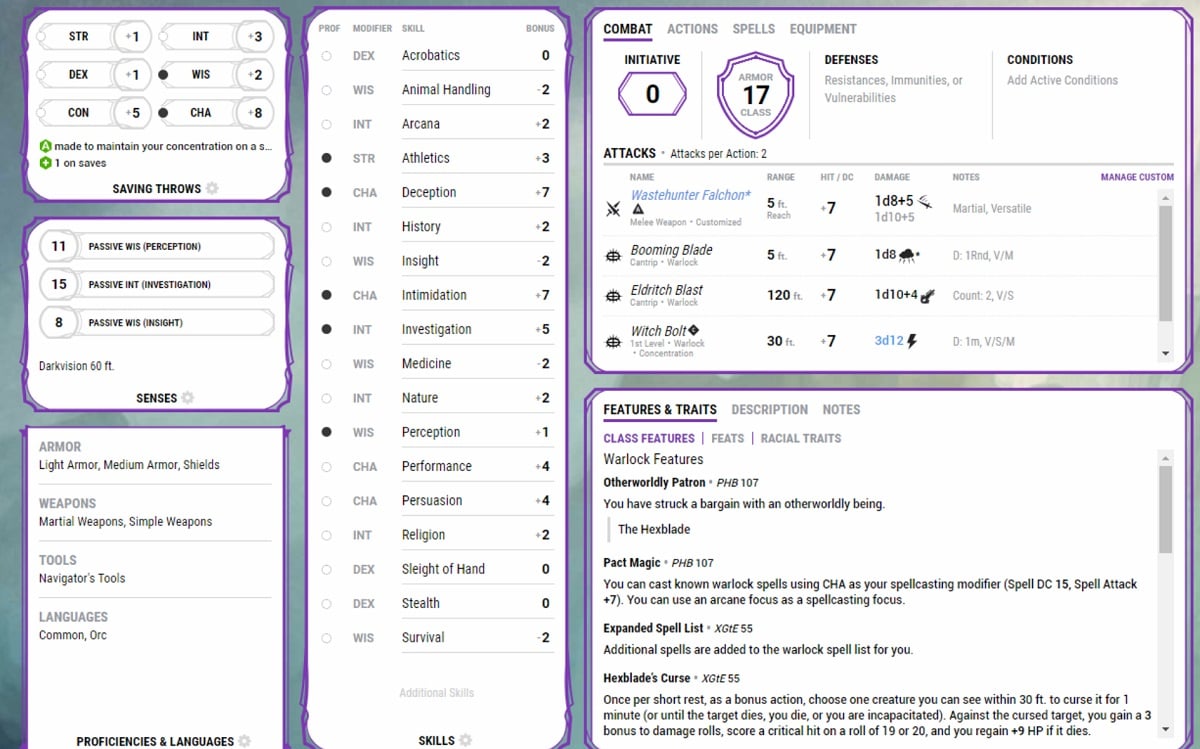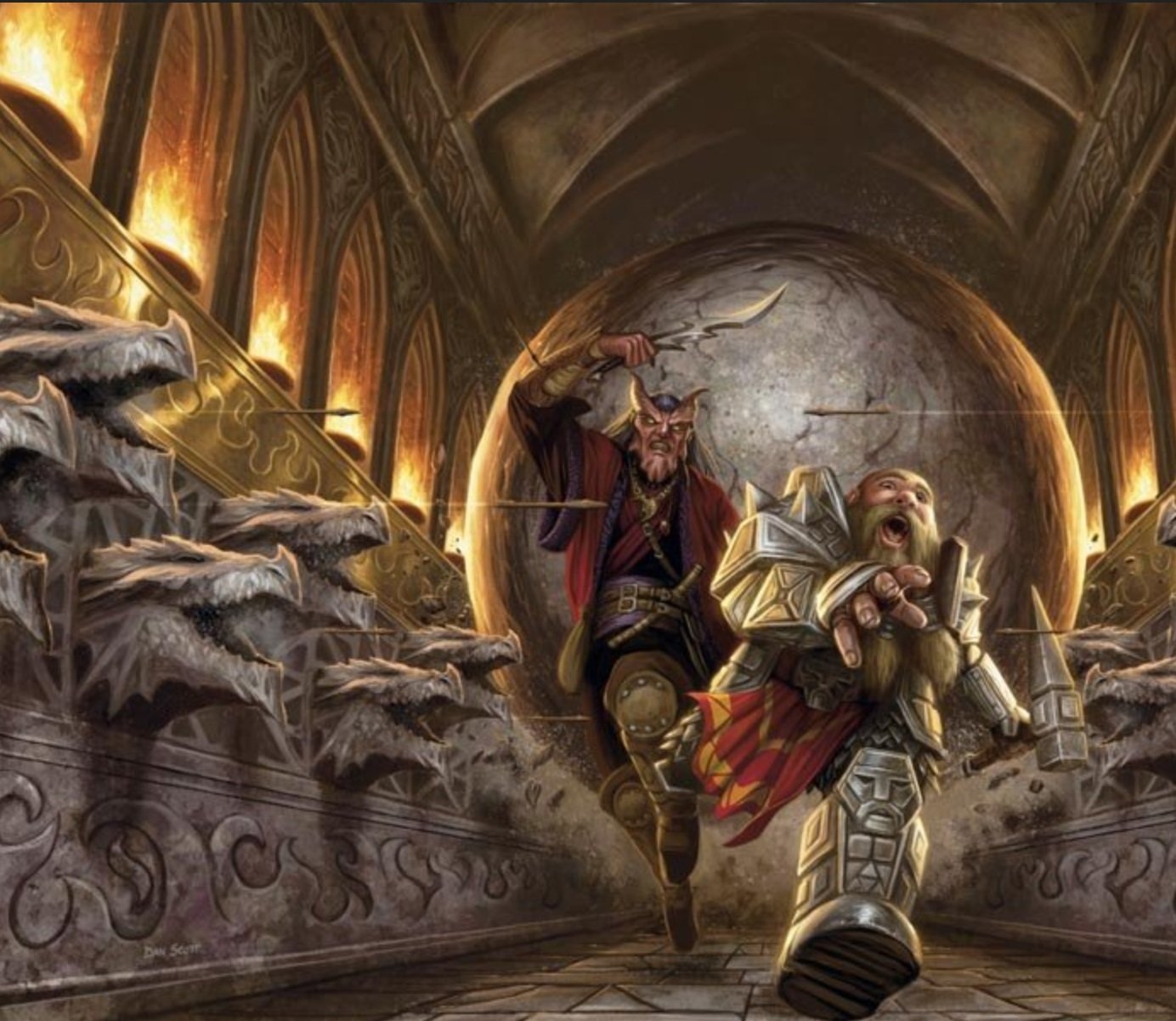D&D: Using Skills With Alternate Ability Scores

You’ve heard of Wisdom (Perception), get ready for Charisma (Athletics). Here’s how to use skills with alternate ability scores.
In D&D 5th Edition there’s no such thing as a skill check. Technically. Your DM might call for a skill check, your favorite member of Critical Role might demand, incredulously “Insight Check.” But if we go by the book like a bunch of nerds, you’re actually making an Ability check. You’re just enhancing it with your proficiency bonus because you’re proficient in a skill. It even specifies this in the Player’s Handbook on page 174:
[P]roficiency in a skill means an individual can add his or her proficiency bonus to ability checks that involve that skill. Without proficiency in the skill, the individual makes a normal ability check.
It’s a very round about way to say basically the same thing. But it’s an important distinction, because it leaves the door open to using skills with alternate abilities.
Why are skills with alternate abilities so important anyway? Because they can give us flavor that we wouldn’t otherwise have. And it might give another character a chance to shine. D&D – or any RPG really – can stand out because they can be intensely personal. Skills with Alternate Abilities is one more tool to do exactly that.
A Question of Skill or Ability
Now normally, your proficiency with a skill only applies to a certain ability check. There’s a big long list of them in the PHB. Strength is for Athletics, Dexterity is for Stealth, Intelligence is for Arcana, Wisdom is for Perception, Charisma is for Deception, for instance. The list goes on. There are plenty of skills and their normally associated abilities right there on your character sheet.
But, what if you want to change that? Well the answer is right there on page 175 of the PHB, listed under Variant: Skills with Different Abilities. The best way to think about it is to imagine how your ability scores apply to the situation. For example, if you’re swimming from a sinking ship to a distant island, normally that would be Strength (Athletics). But in this specific instance, the DM might ask you to make a Constitution (Athletics) check instead.
Why? Because Constitution typically represents endurance and resilience. Swimming a long distance might not necessarily be a question of raw strength, but your body’s hardiness. Already this characterizes the ability check, giving players an idea of what the circumstances are like, and what the general vibe is. Calling for a Constitution check means picturing fatiguing muscles and the steady current.
It also means that a character who isn’t strong might have a chance to make it to shore. The party’s Rogue, for instance, might not have a high strength – but with a good Constitution Modifier, suddenly their chance at making the check gets a lot higher.
Skills with Alternate Abilities – But How Tho?
The trick comes with figuring out how to do this – and when. Use it too often and you’re starting to game the system instead of giving narrative moments a mechanical boost. In other words, no you can’t just use Dex for everything. It’s already used for a lot.
But let’s look at some examples of how you might use alternate ability scores when making skill checks.
We’ll go through ability score by ability score. And this isn’t just for DMs. In the variant rule paragraph, it suggests that a Player might ask their DM to apply a proficiency to a different check. It’s all about what feels right. So keep an open mind.
Strength
- Strength + Intimidation as you break a brick just as easily as you’ll break the NPC who doesn’t give in
- Strength + Thieves’ Tools as you brute force your way past the delicate trap mechanism
- Strength + Performance as you perform impressive feats of strength for an enthralled audience
- Strength + Stealth for when you’ve got to open those heavy oak doors without making a sound
Dexterity
- Dexterity + Medicine to perform first aid or stabilize your companion while you’re on the back of a moving carriage
- Dexterity + Arcana to quickly activate or deactivate a magical effect
- Dexterity + Tinker’s Tools to make a delicate device, or repair something extremely sensitive without it setting off
Constitution
- Constitution + Stealth to remain hidden in a cramped ambush as you wait for your targets to approach
- Constitution + History to sift through dense texts without falling asleep
- Constitution + Animal Handling to tame that bitey/stingy/venomous beast you’ve just found
- Constitution + Survival to make the most of a hazardous environment like a volcano
- Constitution + Persuasion for keeping up with the group of bards trying to see who can get the most drunk
Intelligence
- Intelligence + Athletics to figure out the optimum pursuit path in your rooftop chase
- Intelligence + Persuasion to destroy someone with logic and facts
- Intelligence + Intimidation when you know exactly how you’re going to disintegrate someone atom by atom and want them to know too
Wisdom
- Wisdom + Stealth to figure out a hiding spot nobody is likely to look
- Wisdom + Deception to lie by omission without giving away the game
- Wisdom + History to know how to use the historical facts you learned from the dungeon to ferret out the Mind Flayer thrall
Charisma
- Charisma + Athletics to get somewhere in style
- Charisma + Arcana to overcome the magical wards through sheer force of will–kinda like how sorcerers and warlocks cast spells with Charisma
- Charisma + Animal Handling to calm down the angry but intelligent plant
- Charisma + Stealth to walk through the castle dressed as a nondescript person who just fades into the background and isn’t worth investigating
How would you use skills with a different ability score?










